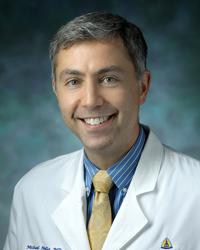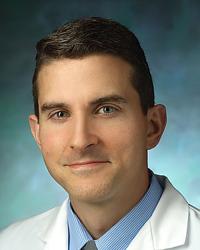Research Lab Results
-
Brain Health Program
The Brain Health Program is a multidisciplinary team of faculty from the departments of neurology, psychiatry, epidemiology, and radiology lead by Leah Rubin and Jennifer Coughlin. In the hope of revealing new directions for therapies, the group studies molecular biomarkers identified from tissue and brain imaging that are associated with memory problems related to HIV infection, aging, dementia, mental illness and traumatic brain injury. The team seeks to advance policies and practices to optimize brain health in vulnerable populations while destigmatizing these brain disorders. Current and future projects include research on: the roles of the stress response, glucocorticoids, and inflammation in conditions that affect memory and the related factors that make people protected or or vulnerable to memory decline; new mobile apps that use iPads to improve our detection of memory deficits; clinical trials looking at short-term effects of low dose hydrocortisone and randomized to 28 days of treatment; imaging brain injury and repair in NFL players to guide players and the game; and the role of inflammation in memory deterioration in healthy aging, patients with HIV, and other neurodegenerative conditions. -
Ken Witwer Laboratory
The Ken Witwer Laboratory investigates extracellular vesicles and RNA in the context of HIV infection and inflammatory disease. We are also actively assessing the effects of diet on extracellular RNA as a potential therapeutic approach.
-
Joseph Mankowski Lab
The Joseph Mankowski Lab studies the immunopathogenesis of HIV infection using the SIV/macaque model. Our researchers use a multidisciplinary approach to dissect the mechanism underlying HIV-induced nervous system and cardiac diseases. Additionally, we study the role that host genetics play in HIV-associated cognitive disorders.
Principal Investigator
Department
-
Chloe Thio Lab
Research in the Chloe Thio lab focuses on several areas. First, HBV virology and immunology in HBV monoinfected and HIV-HBV co-infected individuals that will ultimately help develop a cure for HBV. Second, HCV infection in men who have sex with men. Third, non-alcoholic fatty liver disease with a focus on HIV-infected individuals. Fourth, host genetic determinants of spontaneous HBV recovery and HCV clearance.
-
The Coleman Research Group for Sexual and Reproductive Health
A clinical research group working to advance the field of gynecology through medical innovation, by increasing quality of medical care, and by closing gaps in access to sexual and reproductive healthcare and education. Our team has a number of ongoing and completed projects in the sexual and reproductive health field related to the prevention and treatment of sexually transmitted infections (STIs) and HIV, menstrual disorders, and adolescent sexual and reproductive healthcare. -
Brain Health Program
The Johns Hopkins Brain Health Program is a multi-specialty team of experts from the Johns Hopkins School of Medicine, Whiting School of Engineering, and the Bloomberg School of Public Health. -
Erica Johnson Lab
Research in the Erica Johnson Lab investigates infection control in military deployment environments as well as infections that are associated with combat trauma. We explore topics such as HIV outcomes, gender-based health issues and disparities in care.
-
Michael Melia Lab
Research in the Michael Melia Lab focuses primarily on nocardia infections, Lyme disease and hepatitis C. Our studies have included key topics such as risk factors for incident infections during hepatitis C treatment, racial differences in eligibility for hepatitis C treatment and misdiagnosis of Lyme arthritis using the Borrelia burgdorferi immunoblot testing method. We also have a longstanding interest in medical education and work on curriculum to improve the quality of education for medical students and interns.
-
Richard Chaisson Lab
Research in the Richard Chaisson Lab primarily examines tuberculosis and HIV infection, with specific focus on global epidemiology, clinical trials, diagnostics and public health interventions. Our recent research has involved evaluating a molecular diagnostic test for tuberculosis in HIV patients; observing TB responses during treatment of pulmonary tuberculosis; and examining antiretroviral therapy adherence, virologic and immunologic outcomes in adolescents compared with adults in Southern Africa.
-
Justin Bailey Lab
Research in the Justin Bailey Lab explores immune responses against hepatitis C virus (HCV), particularly neutralizing antibody responses, with the goal of guiding vaccine development against the virus. Recent studies have demonstrated that early and broad neutralizing antibody (nAb) responses against HCV are associated with HCV clearance, suggesting a key role for nAb in limiting HCV replication. The findings of this research will enhance understanding of how HIV infection may contribute to the lower rate of HCV clearance in HCV/HIV coinfected individuals, and the results could have implications for persistence of other viruses commonly occurring as coinfections with HIV.


